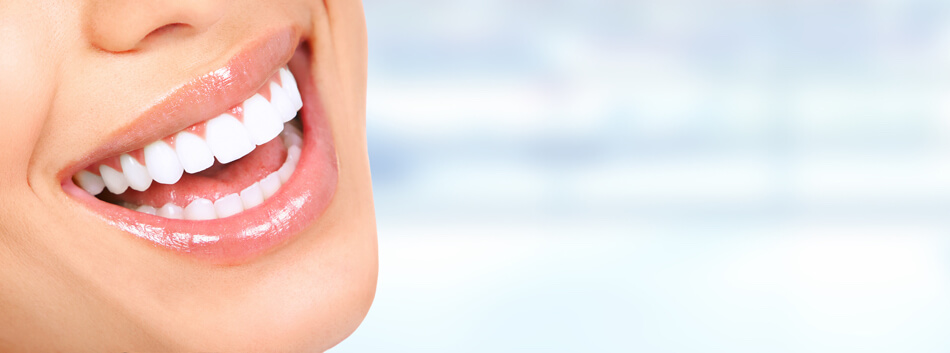Tooth decay
Tooth decay: Symptoms and causes
Tooth decay also known as dental caries or cavities, is a bacterial disease that destroys the protective enamel. The decay bacteria find in young age the way in the mouth and spread there. The cause of cavities is acid from bacteria dissolving the hard tissues of the teeth. The acid is produced by the bacteria when they break down food debris or sugar on the tooth surface and in the interdental spaces. There they have only one goal: to find a hard surface where they can find support and where they can multiply.
This happens quickly and automatically, whether we are aware of it or not, around the clock. If they adhere to the tooth surface, they form the so-called plaque – the invisible film on your teeth. This plaque can only be removed mechanically, preferably with toothbrush and irrigator. If not removed, bacteria can be protected under the plaque, and slowly penetrate through the enamel into the teeth and then lead there to tooth decay.
Important to know: No one is born with tooth decay and tooth decay is not inheritable.
Attention, however: the disease is unfortunately very contagious!
Therefore, it is very important to remove the food particles from the mouth every day. This deprives the caries bacteria the basis of life. the Silodent oral irrigator is Ideally suited for this. The chemical liquid mouthwashes, which work against bacteria in the mouth, have the disadvantage that they destroy not only harmful oral bacteria but also the good bacteria. Usage of mouthwash might lead to bacterial disbalance in mouth.
Symptoms: How to recognize tooth decay?
The cavities may be a number of different colors from yellow to black. Symptoms may include pain and difficulty with eating. Complications may include inflammation of the tissue around the tooth, tooth loss, and infection or abscess formation.
How to remove tooth decay?
If the caries is too advanced, the dentist at the affected area must remove the carious substance and close the resulting hole with a filling. Remember: Prevention is much better than treatment!

How do the bacteria get into my mouth?
An important topic is wrong nutrition. Especially sugar and sugary foods and drinks cause too much acid in the mouth. This makes the bad bacteria happy and damages our teeth. But the most important issue is oral hygiene. Most adults underestimate the importance of regular home-based oral hygiene and, after many years, pay for the loss of their teeth and a lot of money for their replacement.
Who is affected?
Almost every adult. Three-quarters of adults are currently suffering from tooth decay and more than 90% have had caries in their lives. Thus, tooth decay is probably the most widespread disease in the world.
How dangerous is the disease?
Caries is contagious! Parents are infecting their children. When licking the pacifier, when sharing the cutlery, toothbrushes, etc. We put on loved ones kissing. And so on.
Once the bacteria have settled in our mouth, they multiply. They attack the enamel from well-protected areas (usually in the interdental spaces) and penetrate into the teeth.
Chronic inflammatory processes in the mouth increase the risk of heart attacks and strokes by 80%. In pregnant women, they can cause premature birth and increase the risk of gestational diabetes.

And what helps against tooth decay?
- toothbrush? Of course, the toothbrush (electric or hand-toothbrush) removes many bacteria and plaque. But only partially, only approximately 50%! The food particles, which are hidden in the interdental spaces, nourish the bacteria and are usually the beginning of tooth decay.
- It is the best to conduct regular and thorough oral hygiene at home! With toothbrush to remove plaque from the teeth and the Silodent oral irrigator for cleaning the interdental spaces.
- it is recommendable to use a toothpaste on the basis of natural herb exracts. It additionally supports the fight against the harmful bacteria in a natural way. Besides, this toothpaste reduces the bad breath as well.
- Mouthwash? Might be a possibility. But the prolonged use of mouthwashes destroys not only the bad, but all good bacteria, which are of high significance for the health balance.
- A good help is also Oil-pulling treatment. You should conduct an oil-puliing as a first thing in the morning, immediately after getting up for about 10-15 minutes, pull the oil mixture through your mouth, teeth and gums. The special combinations of oils will remove all harmful bacteria from your mouth and detoxify your entire body.
- Healthy Diet: The total amount of daily sugar should be kept as low as possible. Those who consume sugar several times have a greater risk of caries. The acidic drinks damage the enamel and the teeth should not be cleaned immediately after their consumption.
- Regular checkup with the dentist and professional oral hygiene: The better the oral hygiene is conducted at home, the more enjoyable the professional oral hygiene and the dental visits are.
